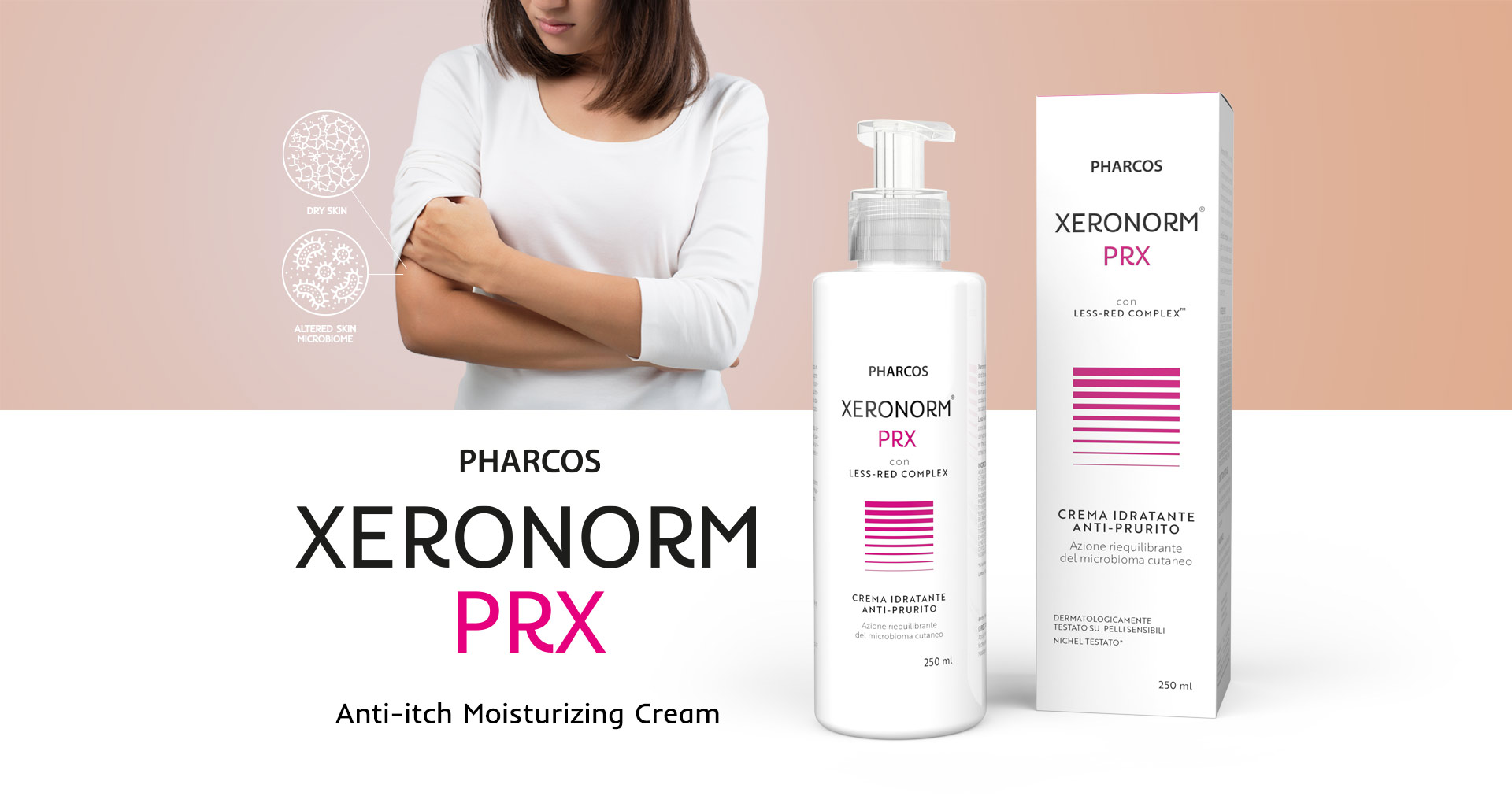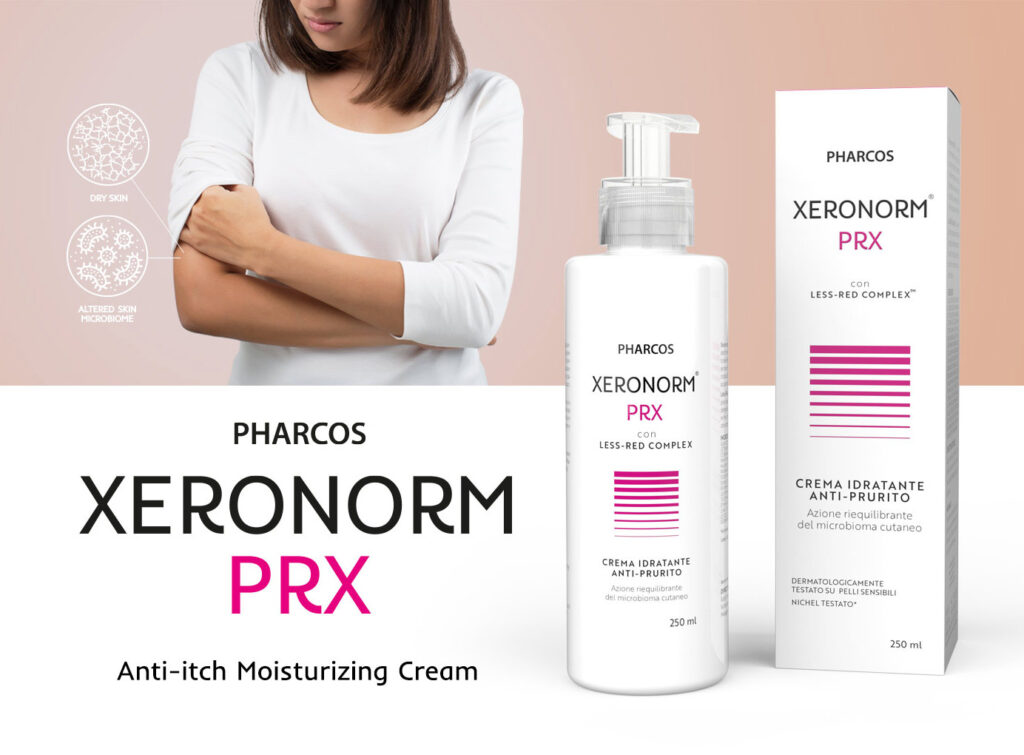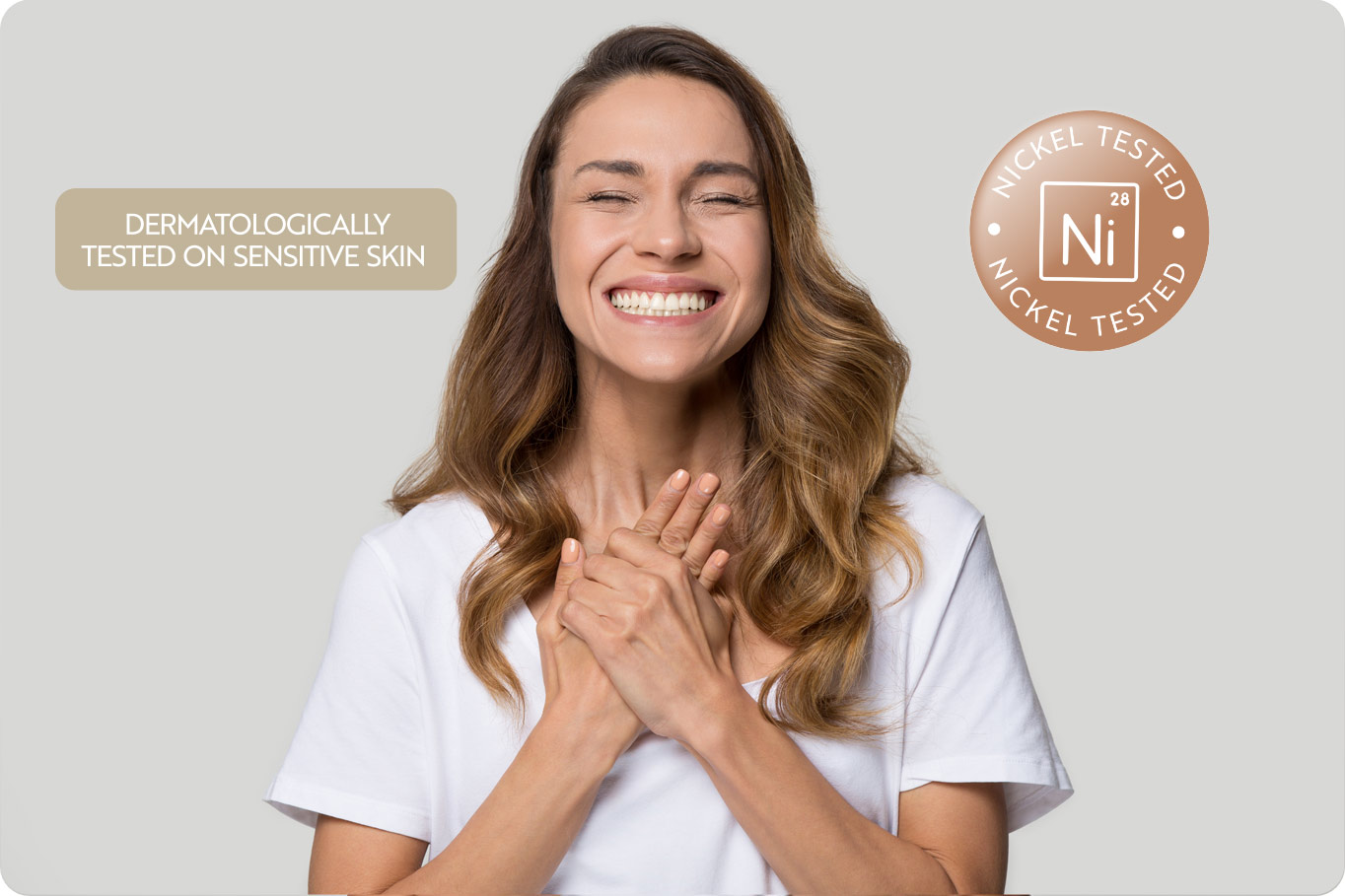



Xeronorm PRX is a soothing moisturizing cream designed to provide relief from itching from the very first days of use.
Thanks to the active ingredients contained in the exclusive formulation, it helps to restore the balance of the skin’s bacterial flora, moisturizing it and reducing itching.
Xeronorm PRX is a soothing moisturizing cream designed to provide relief from itching from the very first days of use.
Thanks to the active ingredients contained in the exclusive formulation, it helps to restore the balance of the skin’s bacterial flora, moisturizing it and reducing itching.
Arms and Hands
Legs
Body

Reduces itching and restores the skin microbiome.
![]()
Gentle exfoliation combined with hydration and restoration of the skin barrier
Increases skin hydration and facilitates penetration of the active ingredients
Clinical studies
Soothes itching and increases hydration right from the start.
100% of patients noticed a reduction in skin dryness,
with a feeling of relief and comfort after 21 days.
Recorded hydration increased by +32%,
48 hours after application.
Are you a physician?
Contact us
to find out more
Buy it now
on our
Amazon store
BioDue SpA Via A. Lorenzetti, 3/A – Loc. Sambuca Val di Pesa 50028 Barberino Tavarnelle (FI) C.F. – P. I.V.A.- Reg. Imp. CCIAA FI n. 02084930482

Itching is a sensation that causes a wish or reflex to scratch, and is the most important symptom in inflammatory diseases and, in particular, in those grouped under the generic name of eczematous dermatitis.
Although the basis of itching is still being intensively studied, some information has been definitively gained.
For example, skin barrier integrity is a primary target, which when corrected, results in the improvement of xerosis.
The pathophysiology of atopic dermatitis is based on complex interactions between the skin barrier, dysbiosis of the skin microbiota, and altered immune responses.
Several studies had already shown a correlation between severity of dermatitis and diversity of the skin microbiome.
Consequently, to reduce itching in these cases, it is important to moisturize the skin and restore the skin barrier, to reduce skin dryness.
Scratching resulting from itching causes damage to the continuity of the skin barrier, releases proinflammatory cytokines, attracts T lymphocytes, and results in the dermopathy becoming chronic. This phenomenon is known as lichenification and is expressed at its most during atopic dermatitis.
We now know that there is also a correlation between skin barrier, skin microbiota and itching.
Commensal bacteria thrive on healthy skin with an acidic pH (pH 4-6), while pathogenic bacteria such as S. aureus thrive at a neutral pH.
AD is associated with an increase in skin pH, promoting colonization by S. aureus.
S. aureus has been shown to induce IL-31, which is the first cytokine known to mediate itching by acting directly on sensory neurons.
Overabundance of S. aureus may contribute to itching intensity through a non-histaminergic mechanism.
This site is protected by reCAPTCHA and the Google Privacy Policy and Terms of Service apply.
Questo sito è protetto da reCAPTCHA e si applicano l’Informativa sulla privacy e i Termini di servizio di Google.

Il prurito è una sensazione che provoca il desiderio o il riflesso di grattarsi
ed è il sintomo più importante nelle malattie infiammatorie e, in particolare,
in quelle che vengono raggruppate sotto la denominazione generica
di dermatiti eczematose.
Sebbene le basi del prurito vengano ancora intensamente studiate, alcune
informazioni sono state definitivamente acquisite. L’integrità della barriera cutanea
è ad esempio un target primario, la cui correzione si traduce
nel miglioramento della xerosi.
La fisiopatologia della dermatite atopica si basa su complesse interazioni tra barriera
cutanea, disbiosi del microbiota cutaneo e alterazioni delle risposte immunitarie.
Già diversi studi avevano dimostrato una correlazione tra gravità della dermatite e diversità del microbioma cutaneo.
In questi casi per ridurre il prurito è quindi importante idratare la pelle e ripristinare
la barriera cutanea, al fine di ridurre la secchezza cutanea.
Il grattamento derivante dal prurito provoca infatti danni di continuità a carico
della barriera cutanea, libera citocine proinfiammatorie, richiama linfociti T
e cronicizza la dermopatia. Questo fenomeno è noto come
lichenificazione e trova la sua massima espressione in corso di dermatite atopica.
Adesso sappiamo che esiste una correlazione anche tra barriera cutanea,
microbiotica cutaneo e prurito. I batteri commensali prosperano sulla pelle sana
con un pH acido (pH 4-6), mentre i batteri patogei come S, aureus prosperano a pH neutri.
La DA è associata ad un aumento del pH cutaneo, promuovendo
la colonizzazione di S. aureus. È stato dimostrato che S. aureus induce IL-31,
che è la prima citochina nota per mediare il prurito agendo direttamente sui neuroni
sensoriali. La sovrabbondanza di S. aureus può contribuire all’intensità del prurito
attraverso un meccanismo non istaminergico.